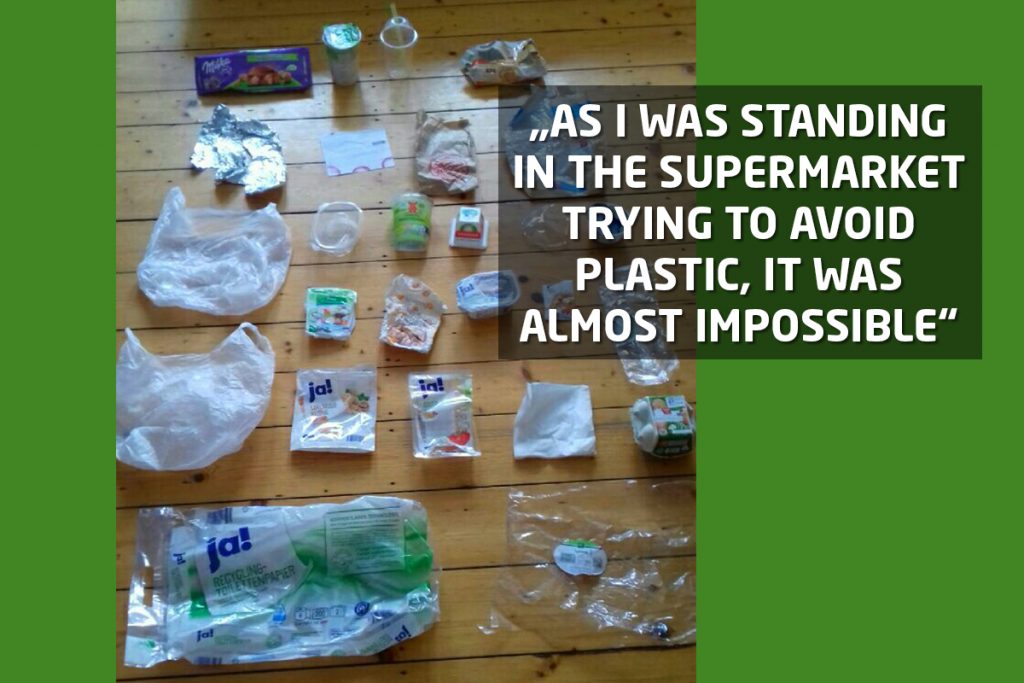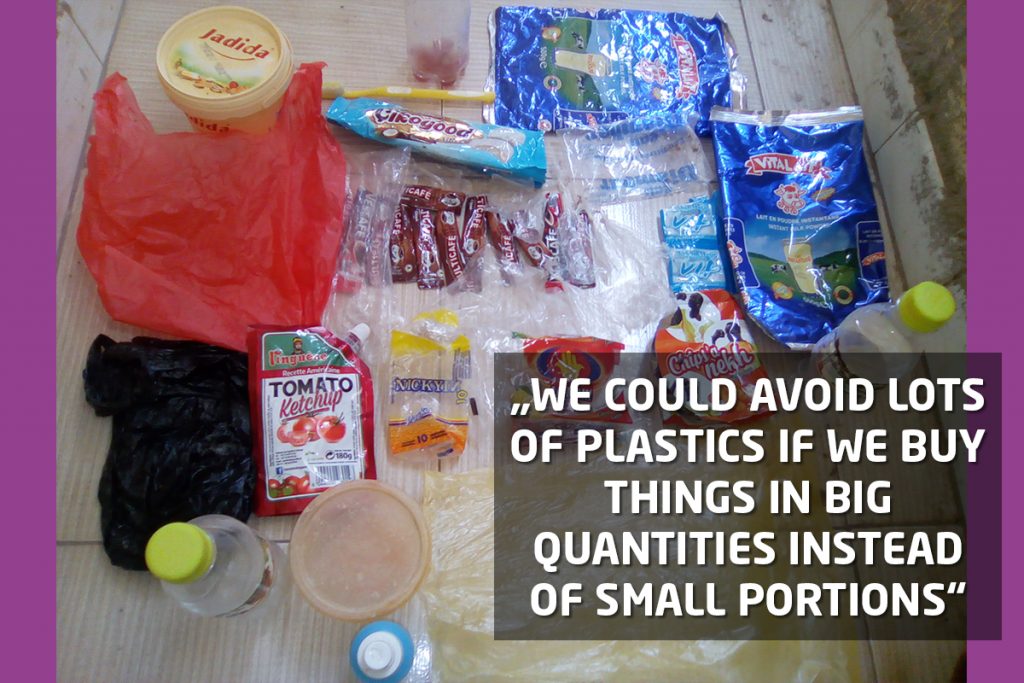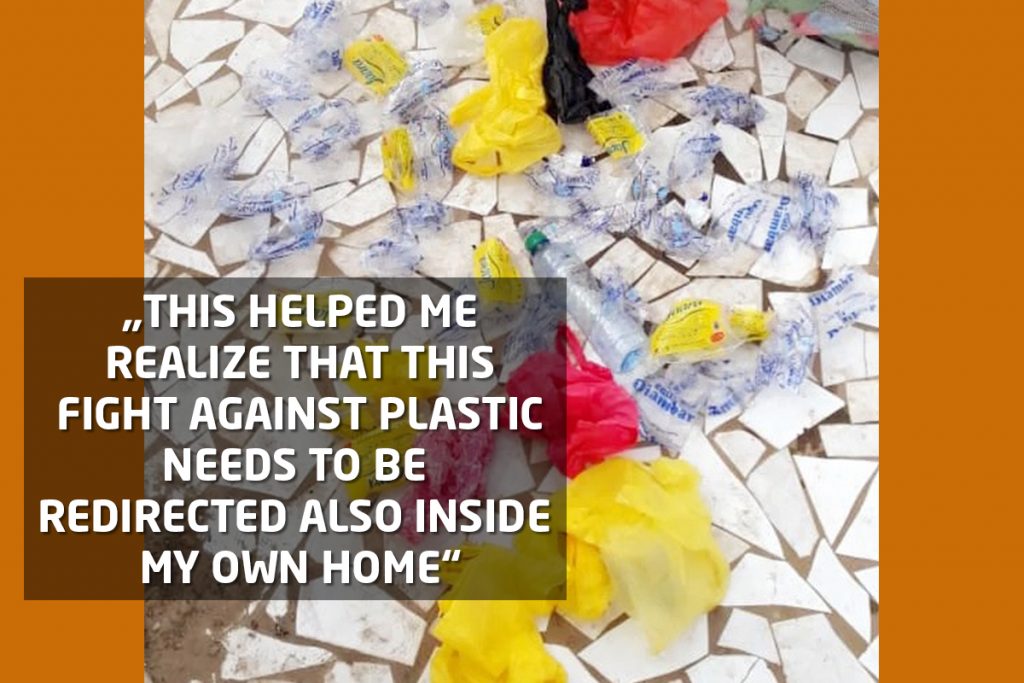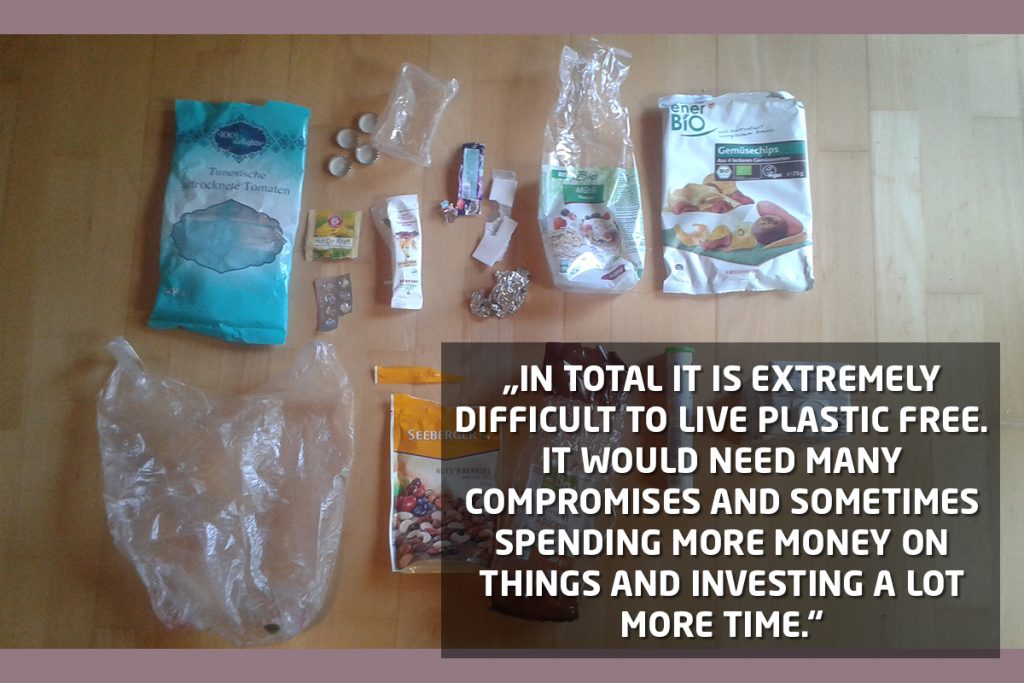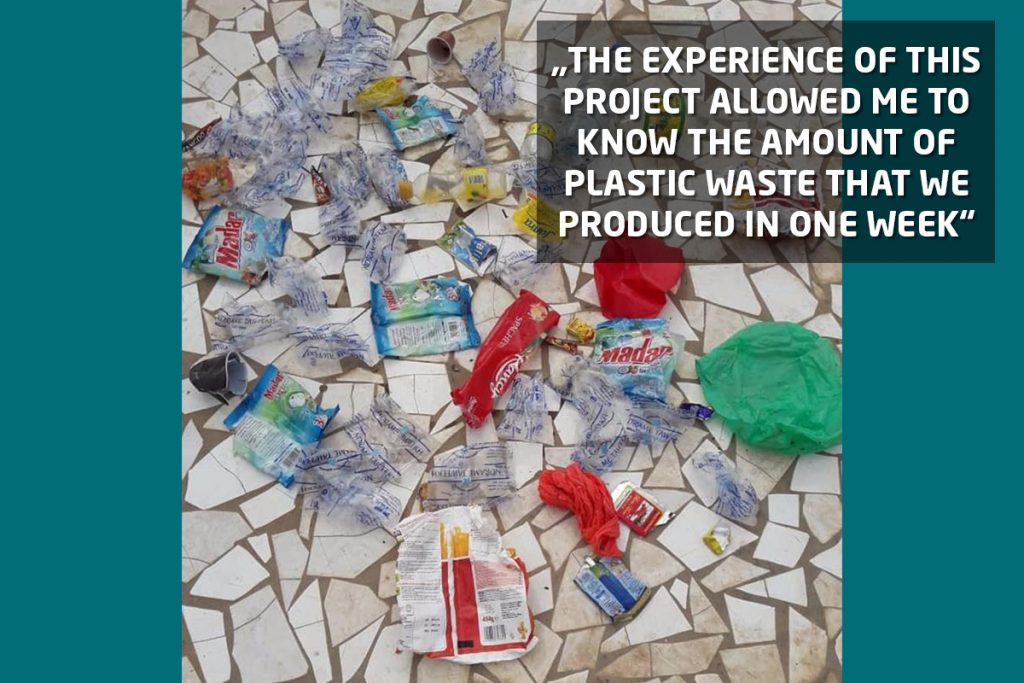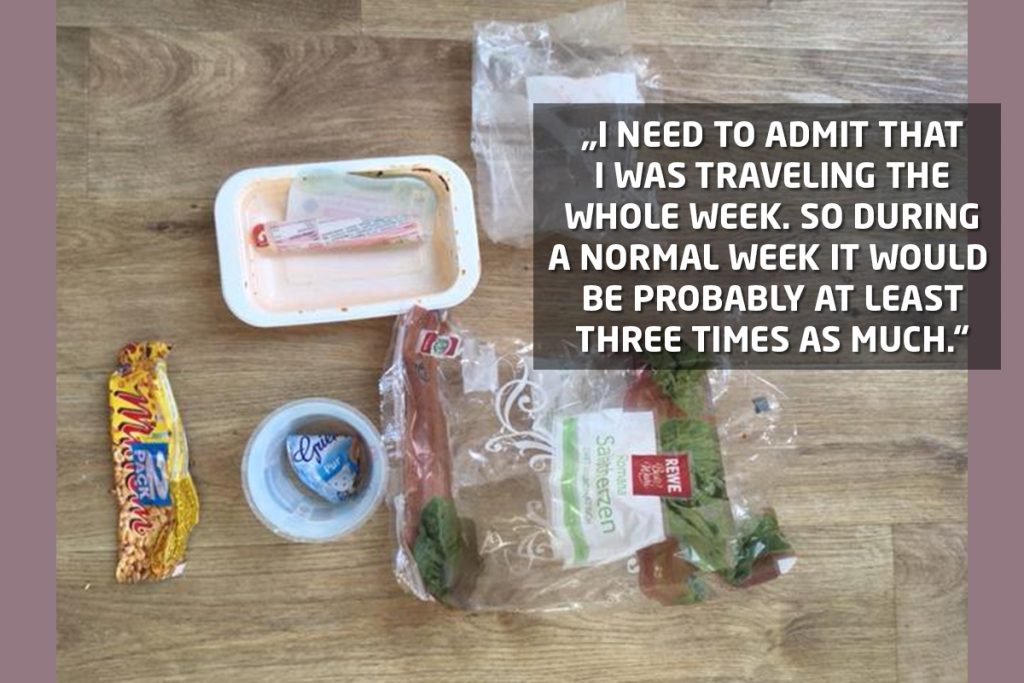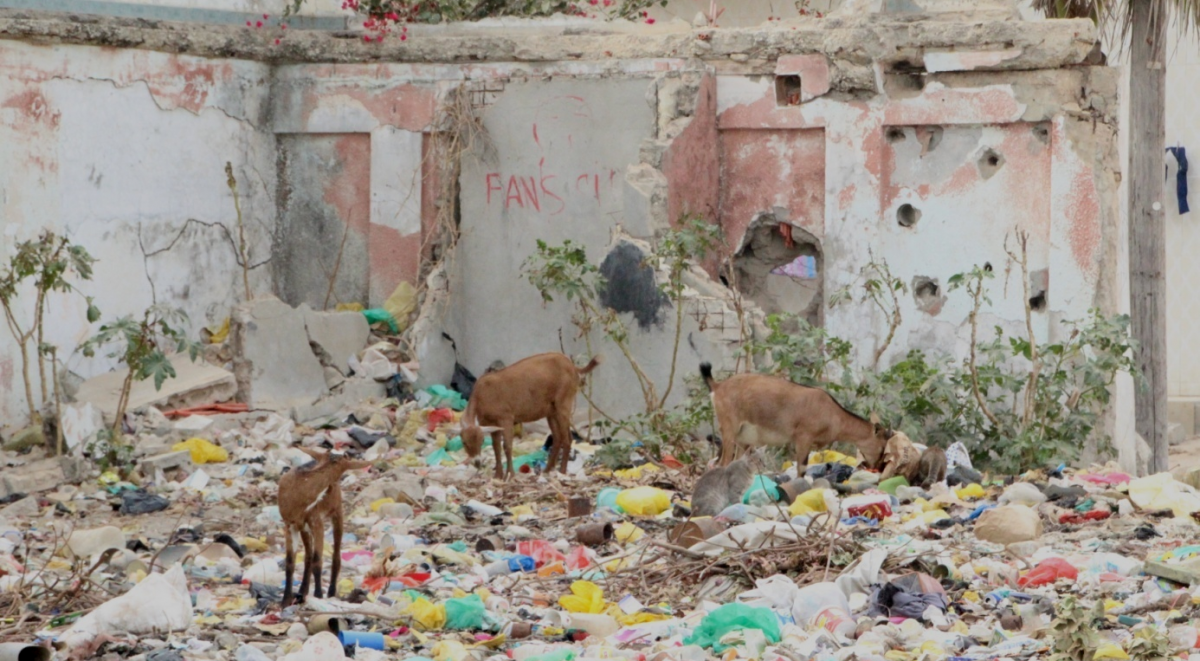
Waste on the beach of Petit Mbao, Senegal
Plastic project from NFDJ and Senegal Naturefriends
By Youssoupha Traore (Senegal), Janinka Lutze (Germany)
Following the perspective of fighting against plastic waste, we set a project around plastic collection. The participants were young Naturefriends that had been participants at our German-Senegalese youth exchange 2017/18. We’ve been inspired by the project “Family around the world join war on plastic-in pictures” and we wanted to do it out ourselves. Each of us collected the plastics that we used during one week.
This idea that people collect the plastic containers, bottles, packages, bags, etc., that they use during a week is very helpful for the reflection of our consumption and the impact on the environment. Often, we use plastic in our daily life without even paying attention to it. Therefore we cannot notice how much we are contributing to the plastic pollution in our environment.
The topic is huge these days and is one of the biggest global environmental challenges. Tons of plastic float in the oceans, sometimes in huge carpets of several square kilometers, some as single floating pieces or as microplastics. All of them threaten the health of many plants and animals. Birds, wales, fish, turtles and lots of other animals get caught up in plastic, such as old fishery nets, and die painfully as strangled, drowned or simply too injured to recover. Some animals also die as they swallowed too much plastic. For example, turtles or wales starve as their stomachs are filled with plastics they can’t digest, leaving no space for real food. Microplastics are also found in many species’ digestive systems or even cells, but we still don´t know the impact those may have on the animals, plants and humans.
This problem should be solved immediately to ensure the future of many species, the health of thousands of people and the survival of our planet! Most plastics are single use and then thrown away. There are enough alternatives, but sadly most people don’t use them yet.
Fight plastic waste. Be refusing, reducing and reusing.
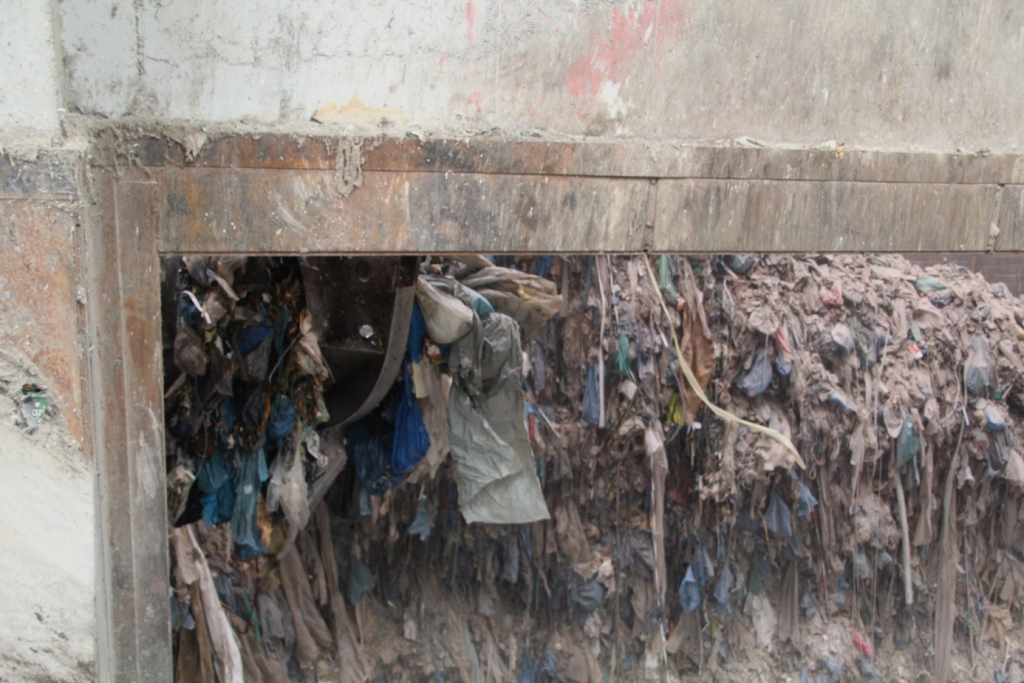
Waste in the waste management plant in Frankfurt, Germany
Our little project aims to make each participant aware of any plastic he/she uses it his/her daily life. And at the end of the week, when we gathered all the plastics that we have used and collected for the picture we saw how much plastic it was. It showed us which plastics we use and to estimate how big our part in the plastic pollution is. Thus, once we identified these, we were more able to thinking of how to reduce them, what plastic containers we might not need as products are available plastic-free. We also started to think about solutions and alternatives.
Below you can see some examples of our project:
